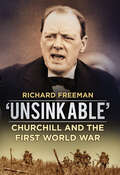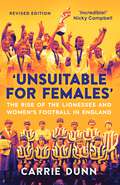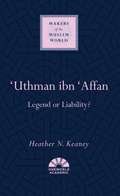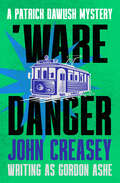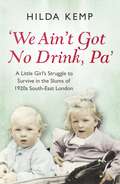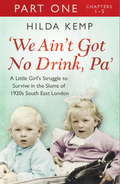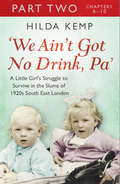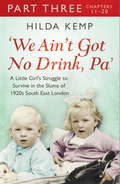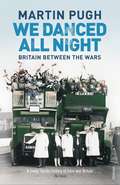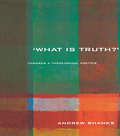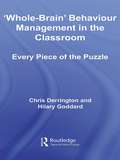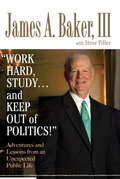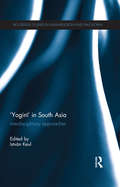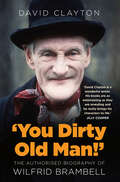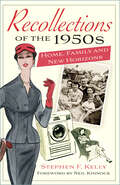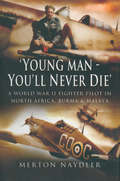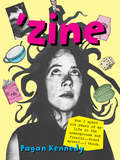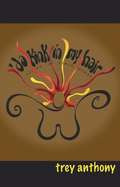- Table View
- List View
'Union is Strength'
by Albert SchrauwersNineteenth-century Canada experienced two other revolutions apart from those of W.L. Mackenzie and Louis Riel: the transition to capitalism, and to responsible government. Union Is Strength argues that these major socio-political changes happened in Ontario without a revolutionary moment because of the intertwined relationship of reformers with capitalists. Examining a small, utopian socialist group named the Children of Peace, Albert Schrauwers traces the emergence of a vibrant democratic culture in the province from the decade before the Rebellions of 1837. Schrauwers shows how the overlapping boards of unincorporated joint stock companies managed by both Toronto reformers and the Children of Peace produced a culture of deliberative democracy in competition with the "gentlemanly capitalism" of chartered corporations. Noting the ways in which Ontario's capitalist and democratic revolutions were linked through cooperative joint stock operations, he also situates these revolutions in an international context and links them to the development of Owenite socialism and Chartism in the United Kingdom. Union Is Strength is an insightful study of both nineteenth century Canada and the ways in which regional political cultures arise.
'Unsinkable': Churchill and the First World War
by Richard Freeman‘Unsinkable’ is the story of a man unjustly vilified: Churchill in the First World. His enemies – the Tory party – censured him for Antwerp, the Dardanelles and Gallipoli. He could do no right and was regarded as a dangerous maniac. But the true story is quite the opposite. This book tells how, as a brilliant First Sea Lord, Churchill was ousted by his enemies, yet clawed his way back to power against all the odds. As the leading critic of senselessly sending men to march towards machine guns his calls for ‘machines not men’ went unheeded. After a spell in the trenches he returned to London to clear his name over the Dardanelles. Then he relentless fought his way back to power through his brilliant, incisive criticism of the land war. The unsinkable politician finally became Munitions Minster in 1917, where he pushed output to unimagined levels. His weapons delivered the victory that had eluded others for the previous three years.
'Unsuitable for Females': The Rise of the Lionesses and Women's Football in England
by Carrie DunnShortlisted for the 2023 Sports Book Awards for Best Football Writing of the Year Discover the origins of the Lionesses that brought football home. England's Lionesses are on the front and back pages; their stars feature on prime-time television; they are named in the national honours lists for their contribution to their sport and to society. The names of Lucy Bronze, Steph Houghton and Ellen White are emblazoned across the backs of children’s replica jerseys. These women are top athletes – and top celebrities. But in 1921, the Football Association introduced a ban on women’s football, pronouncing the sport 'quite unsuitable for females'. That ban would last for half a century - but despite official prohibition the women’s game went underground. From the Dick, Kerr Ladies touring the world to the Lost Lionesses who played at the unsanctioned Women's World Cup in Mexico in 1971, generations of women defied the restrictions and laid the foundations for today's Lionesses - so much so that in 2018 England's Women’s Super League became the first fully professional league in Europe...when just a few decades previously women were forbidden to play the sport in England at all. This book tells the story of women’s football in England since its 19th-century inception through pen portraits of its trailblazers. The game might have once been banned because of its popularity – find out about the subversive women who kept organising their teams and matches despite the prohibition, who broke barriers and set records – the legends of the game who built the foundations of the stage upon which today’s stars flourish. 'At what feels like a pivotal moment, Carrie’s forensic research and depth of knowledge make her the perfect person to guide us through the constantly changing landscape of women’s football' - Kelly Cates, TV presenter
'Uthman ibn 'Affan: Legend or Liability? (Makers of the Muslim World)
by Heather N. Keaney&‘Uthman ibn &‘Affan (d. 656) was an early convert to Islam and the third successor to the Prophet Muhammad. As caliph he established the first Islamic navy, consolidated the text of the Qur&’an, and expanded the Arab empire. His opponents, however, accused him of being corrupt and questioned his legitimacy. After twelve years &‘Uthman&’s troubled caliphate ended in revolt. His death at the hands of rebels led to civil war and contributed to the eventual split between Sunni and Shi&’i Islam. In this volume, Heather Keaney examines the life and legacy of the controversial caliph.
'Ware Danger (The Patrick Dawlish Mysteries)
by Gordon AsheBritish sleuth Patrick Dawlish is about to discover that during World War II, there&’s as much intrigue on the home front as on the front lines. The big, broken-nosed Patrick Dawlish has a history of matching wits against those who have outwitted the police. It&’s practically become his chosen vocation when he&’s not serving in Her Majesty&’s armed forces. Dawlish&’s requests to serve overseas have been rejected since he&’s far too valuable in England. This is how he finds himself on a train to London with friends Ted Beresford and Timothy Jeremy—three junior officers with the same mysterious orders to meet in the same mysterious room. Someone is attempting to sabotage negotiations between Ireland and England—and delaying much-needed wartime supplies. Within a day of reaching London, Dawlish and his men are faced with fires, explosions, and a shocking political assassination. And now, at least two countries will learn that it&’s never smart to have Dawlish in the mix when he begins to take matters personally . . .
'We Ain't Got No Drink, Pa': A Little Girl's Struggle to Survive in the Slums of 1920s South East London
by Cathryn Kemp Hilda Kemp'We ain't got no drink, Pa.' I trembled as I spoke. Then somewhere inside me I found the anger, the courage to answer him back.'We don't have no grog cos you drank it all!'I knew he was going for me tonight, so I reckoned I might as well go down fighting after all.Growing up in the slums of 1920s and 30s Bermondsey, Hilda Kemp's childhood was one of chaos and fear. Every day was battleground, a fight to survive and a fight to be safe. For Hilda knew what it was to grow up in desperate poverty: to have to scratch around for a penny to buy bread; to feel the seeping cold of a foggy docklands night with only a thin blanket to cover her; to share her filthy mattress with her brothers and sisters, fighting for space while huddling to keep warm. She knew what it was to feel hunger - not the impatient growl of a tummy that has missed a meal; proper hunger, the type that aches in your soul as much as your belly. The eldest of five children, Hilda was the daughter of a hard drinker and hard hitter as well. A casual dockworker by day, a bare-knuckle fighter by night and a lousy drunk to boot, her pa honed his fists down the Old Kent Road and Blackfriars, and it was Hilda or her ma who bore the brunt of them at home. This is the powerful and moving memoir of Hilda's childhood growing up in dark, filthy, crime-ridden Bermondsey; a place where you knew your neighbours, where you kept your eyes down and your ears shut as defence against the gangs at war in the streets. It's a time when days were spent running wild down the docklands, jumping onto barges and stealing coal, racing through the dank back-streets of east London like water rats, dodging the milk cart or the rag-and-bone man.And out of this bleak landscape emerges a brave, resilient young girl whose life is a testament to the power of love and good humour. Moving, dazzling and sombre by turns, once opened this brilliant, seductive book will not let you rest.
'We Ain't Got No Drink, Pa': A Little Girl's Struggle to Survive in the Slums of 1920s South East London
by Cathryn Kemp Hilda Kemp'We ain't got no drink, Pa.' I trembled as I spoke. Then somewhere inside me I found the anger, the courage to answer him back.'We don't have no grog cos you drank it all!'I knew he was going for me tonight, so I reckoned I might as well go down fighting after all.Growing up in the slums of 1920s and 30s Bermondsey, Hilda Kemp's childhood was one of chaos and fear. Every day was battleground, a fight to survive and a fight to be safe. For Hilda knew what it was to grow up in desperate poverty: to have to scratch around for a penny to buy bread; to feel the seeping cold of a foggy docklands night with only a thin blanket to cover her; to share her filthy mattress with her brothers and sisters, fighting for space while huddling to keep warm. She knew what it was to feel hunger - not the impatient growl of a tummy that has missed a meal; proper hunger, the type that aches in your soul as much as your belly. The eldest of five children, Hilda was the daughter of a hard drinker and hard hitter as well. A casual dockworker by day, a bare-knuckle fighter by night and a lousy drunk to boot, her pa honed his fists down the Old Kent Road and Blackfriars, and it was Hilda or her ma who bore the brunt of them at home. This is the powerful and moving memoir of Hilda's childhood growing up in dark, filthy, crime-ridden Bermondsey; a place where you knew your neighbours, where you kept your eyes down and your ears shut as defence against the gangs at war in the streets. It's a time when days were spent running wild down the docklands, jumping onto barges and stealing coal, racing through the dank back-streets of east London like water rats, dodging the milk cart or the rag-and-bone man.And out of this bleak landscape emerges a brave, resilient young girl whose life is a testament to the power of love and good humour. Moving, dazzling and sombre by turns, once opened this brilliant, seductive book will not let you rest.
'We Ain't Got No Drink, Pa': Part 1
by Cathryn Kemp Hilda KempWe Ain't Got No Drink, Pa can either be read as full-length eBook or in 3 serialised eBook-only parts.This is PART 1 OF 3.'We ain't got no drink, Pa.' I trembled as I spoke. Then somewhere inside me I found the anger, the courage to answer him back. 'We don't have no grog cos you drank it all!' I knew he was going for me tonight, so I reckoned I might as well go down fighting after all. Growing up in the slums of 1920s and 30s Bermondsey, Hilda Kemp's childhood was one of chaos and fear. Every day was battleground, a fight to survive and a fight to be safe. For Hilda knew what it was to grow up in desperate poverty: to have to scratch around for a penny to buy bread; to feel the seeping cold of a foggy docklands night with only a thin blanket to cover her; to share her filthy mattress with her brothers and sisters, fighting for space while huddling to keep warm. She knew what it was to feel hunger - not the impatient growl of a tummy that has missed a meal; proper hunger, the type that aches in your soul as much as your belly. The eldest of five children, Hilda was the daughter of a hard drinker and hard hitter as well. A casual dockworker by day, a bare-knuckle fighter by night and a lousy drunk to boot, her pa honed his fists down the Old Kent Road and Blackfriars, and it was Hilda or her ma who bore the brunt of them at home. This is the powerful and moving memoir of Hilda's childhood growing up in dark, filthy, crime-ridden Bermondsey; a place where you knew your neighbours, where you kept your eyes down and your ears shut as defence against the gangs at war in the streets. It's a time when days were spent running wild down the docklands, jumping onto barges and stealing coal, racing through the dank back-streets of east London like water rats, dodging the milk cart or the rag-and-bone man. And out of this bleak landscape emerges a brave, resilient young girl whose life is a testament to the power of love and good humour. Moving, dazzling and sombre by turns, once opened this brilliant, seductive book will not let you rest.
'We Ain't Got No Drink, Pa': Part 1
by Cathryn Kemp Hilda KempWe Ain't Got No Drink, Pa can either be read as full-length eBook or in 3 serialised eBook-only parts.This is PART 1 OF 3.'We ain't got no drink, Pa.' I trembled as I spoke. Then somewhere inside me I found the anger, the courage to answer him back. 'We don't have no grog cos you drank it all!' I knew he was going for me tonight, so I reckoned I might as well go down fighting after all. Growing up in the slums of 1920s and 30s Bermondsey, Hilda Kemp's childhood was one of chaos and fear. Every day was battleground, a fight to survive and a fight to be safe. For Hilda knew what it was to grow up in desperate poverty: to have to scratch around for a penny to buy bread; to feel the seeping cold of a foggy docklands night with only a thin blanket to cover her; to share her filthy mattress with her brothers and sisters, fighting for space while huddling to keep warm. She knew what it was to feel hunger - not the impatient growl of a tummy that has missed a meal; proper hunger, the type that aches in your soul as much as your belly. The eldest of five children, Hilda was the daughter of a hard drinker and hard hitter as well. A casual dockworker by day, a bare-knuckle fighter by night and a lousy drunk to boot, her pa honed his fists down the Old Kent Road and Blackfriars, and it was Hilda or her ma who bore the brunt of them at home. This is the powerful and moving memoir of Hilda's childhood growing up in dark, filthy, crime-ridden Bermondsey; a place where you knew your neighbours, where you kept your eyes down and your ears shut as defence against the gangs at war in the streets. It's a time when days were spent running wild down the docklands, jumping onto barges and stealing coal, racing through the dank back-streets of east London like water rats, dodging the milk cart or the rag-and-bone man. And out of this bleak landscape emerges a brave, resilient young girl whose life is a testament to the power of love and good humour. Moving, dazzling and sombre by turns, once opened this brilliant, seductive book will not let you rest.
'We Ain't Got No Drink, Pa': Part 1
by Cathryn Kemp Hilda KempWe Ain't Got No Drink, Pa can either be read as full-length eBook or in 3 serialised eBook-only parts. This is PART 1 OF 3. 'We ain't got no drink, Pa.' I trembled as I spoke. Then somewhere inside me I found the anger, the courage to answer him back. 'We don't have no grog cos you drank it all!' I knew he was going for me tonight, so I reckoned I might as well go down fighting after all. Growing up in the slums of 1920s and 30s Bermondsey, Hilda Kemp's childhood was one of chaos and fear. Every day was battleground, a fight to survive and a fight to be safe. For Hilda knew what it was to grow up in desperate poverty: to have to scratch around for a penny to buy bread; to feel the seeping cold of a foggy docklands night with only a thin blanket to cover her; to share her filthy mattress with her brothers and sisters, fighting for space while huddling to keep warm. She knew what it was to feel hunger - not the impatient growl of a tummy that has missed a meal; proper hunger, the type that aches in your soul as much as your belly. The eldest of five children, Hilda was the daughter of a hard drinker and hard hitter as well. A casual dockworker by day, a bare-knuckle fighter by night and a lousy drunk to boot, her pa honed his fists down the Old Kent Road and Blackfriars, and it was Hilda or her ma who bore the brunt of them at home. This is the powerful and moving memoir of Hilda's childhood growing up in dark, filthy, crime-ridden Bermondsey; a place where you knew your neighbours, where you kept your eyes down and your ears shut as defence against the gangs at war in the streets. It's a time when days were spent running wild down the docklands, jumping onto barges and stealing coal, racing through the dank back-streets of east London like water rats, dodging the milk cart or the rag-and-bone man. And out of this bleak landscape emerges a brave, resilient young girl whose life is a testament to the power of love and good humour. Moving, dazzling and sombre by turns, once opened this brilliant, seductive book will not let you rest.
'We Ain't Got No Drink, Pa': Part 2
by Cathryn Kemp Hilda KempWe Ain't Got No Drink, Pa can either be read as full-length eBook or in 3 serialised eBook-only parts.This is PART 2 OF 3.'We ain't got no drink, Pa.' I trembled as I spoke. Then somewhere inside me I found the anger, the courage to answer him back. 'We don't have no grog cos you drank it all!' I knew he was going for me tonight, so I reckoned I might as well go down fighting after all. Growing up in the slums of 1920s and 30s Bermondsey, Hilda Kemp's childhood was one of chaos and fear. Every day was battleground, a fight to survive and a fight to be safe. For Hilda knew what it was to grow up in desperate poverty: to have to scratch around for a penny to buy bread; to feel the seeping cold of a foggy docklands night with only a thin blanket to cover her; to share her filthy mattress with her brothers and sisters, fighting for space while huddling to keep warm. She knew what it was to feel hunger - not the impatient growl of a tummy that has missed a meal; proper hunger, the type that aches in your soul as much as your belly. The eldest of five children, Hilda was the daughter of a hard drinker and hard hitter as well. A casual dockworker by day, a bare-knuckle fighter by night and a lousy drunk to boot, her pa honed his fists down the Old Kent Road and Blackfriars, and it was Hilda or her ma who bore the brunt of them at home. This is the powerful and moving memoir of Hilda's childhood growing up in dark, filthy, crime-ridden Bermondsey; a place where you knew your neighbours, where you kept your eyes down and your ears shut as defence against the gangs at war in the streets. It's a time when days were spent running wild down the docklands, jumping onto barges and stealing coal, racing through the dank back-streets of east London like water rats, dodging the milk cart or the rag-and-bone man. And out of this bleak landscape emerges a brave, resilient young girl whose life is a testament to the power of love and good humour. Moving, dazzling and sombre by turns, once opened this brilliant, seductive book will not let you rest.
'We Ain't Got No Drink, Pa': Part 3
by Cathryn Kemp Hilda KempWe Ain't Got No Drink, Pa can either be read as full-length eBook or in 3 serialised eBook-only parts.This is PART 3 OF 3.'We ain't got no drink, Pa.' I trembled as I spoke. Then somewhere inside me I found the anger, the courage to answer him back. 'We don't have no grog cos you drank it all!' I knew he was going for me tonight, so I reckoned I might as well go down fighting after all. Growing up in the slums of 1920s and 30s Bermondsey, Hilda Kemp's childhood was one of chaos and fear. Every day was battleground, a fight to survive and a fight to be safe. For Hilda knew what it was to grow up in desperate poverty: to have to scratch around for a penny to buy bread; to feel the seeping cold of a foggy docklands night with only a thin blanket to cover her; to share her filthy mattress with her brothers and sisters, fighting for space while huddling to keep warm. She knew what it was to feel hunger - not the impatient growl of a tummy that has missed a meal; proper hunger, the type that aches in your soul as much as your belly. The eldest of five children, Hilda was the daughter of a hard drinker and hard hitter as well. A casual dockworker by day, a bare-knuckle fighter by night and a lousy drunk to boot, her pa honed his fists down the Old Kent Road and Blackfriars, and it was Hilda or her ma who bore the brunt of them at home. This is the powerful and moving memoir of Hilda's childhood growing up in dark, filthy, crime-ridden Bermondsey; a place where you knew your neighbours, where you kept your eyes down and your ears shut as defence against the gangs at war in the streets. It's a time when days were spent running wild down the docklands, jumping onto barges and stealing coal, racing through the dank back-streets of east London like water rats, dodging the milk cart or the rag-and-bone man. And out of this bleak landscape emerges a brave, resilient young girl whose life is a testament to the power of love and good humour. Moving, dazzling and sombre by turns, once opened this brilliant, seductive book will not let you rest.
'We Ain't Got No Drink, Pa': Part 3
by Cathryn Kemp Hilda KempWe Ain't Got No Drink, Pa can either be read as full-length eBook or in 3 serialised eBook-only parts. This is PART 3 OF 3. 'We ain't got no drink, Pa.' I trembled as I spoke. Then somewhere inside me I found the anger, the courage to answer him back. 'We don't have no grog cos you drank it all!' I knew he was going for me tonight, so I reckoned I might as well go down fighting after all. Growing up in the slums of 1920s and 30s Bermondsey, Hilda Kemp's childhood was one of chaos and fear. Every day was battleground, a fight to survive and a fight to be safe. For Hilda knew what it was to grow up in desperate poverty: to have to scratch around for a penny to buy bread; to feel the seeping cold of a foggy docklands night with only a thin blanket to cover her; to share her filthy mattress with her brothers and sisters, fighting for space while huddling to keep warm. She knew what it was to feel hunger - not the impatient growl of a tummy that has missed a meal; proper hunger, the type that aches in your soul as much as your belly. The eldest of five children, Hilda was the daughter of a hard drinker and hard hitter as well. A casual dockworker by day, a bare-knuckle fighter by night and a lousy drunk to boot, her pa honed his fists down the Old Kent Road and Blackfriars, and it was Hilda or her ma who bore the brunt of them at home. This is the powerful and moving memoir of Hilda's childhood growing up in dark, filthy, crime-ridden Bermondsey; a place where you knew your neighbours, where you kept your eyes down and your ears shut as defence against the gangs at war in the streets. It's a time when days were spent running wild down the docklands, jumping onto barges and stealing coal, racing through the dank back-streets of east London like water rats, dodging the milk cart or the rag-and-bone man. And out of this bleak landscape emerges a brave, resilient young girl whose life is a testament to the power of love and good humour. Moving, dazzling and sombre by turns, once opened this brilliant, seductive book will not let you rest.
'We Are Still Didene'
by Thomas McilwraithDetailing the history of the aboriginal village of Iskut, British Columbia over the past 100 years, 'We Are Still Didene' examines the community's transition from subsistence hunting to wage work in trapping, guiding, construction, and service jobs. Using naturally occurring, extended transcripts of stories told by the group's hunters, Thomas McIlwraith explores how Iskut hunting culture and the memories that the Iskut share have been maintained orally. McIlwraith demonstrates the ways in which these stories challenge the idealized images of Aboriginals that underlie state-sponsored traditional ecological knowledge (TEK) studies. McIlwraith instead illuminates how these narratives are connected to the Iskut Village's complex relationships with resource extraction companies and the province of British Columbia, as well as their interactions with animals and the environment.
'We Danced All Night': A Social History of Britain Between the Wars
by Martin PughMartin Pugh offers a uniquely untraditional view of Britain’s inter-war period; that among the many dramatic social changes taking place, our modern consumer society of dedicated shoppers effectively took shape during the 1930s.
'What is Truth?': Towards a Theological Poetics
by Andrew ShanksIn a culture where institutional religion is in decline there is a pressing need for new theological strategies. Andrew Shanks argues for a fresh 'theological poetics', providing an eloquent first step towards meeting these needs and an alternative strategy for reconciling Christian theology with poetic truth.
'Whole-Brain' Behaviour Management in the Classroom: Every Piece of the Puzzle
by Chris Derrington Hilary GoddardRepresenting a brave and insightful shift away from narrow perspectives on behaviour management, this book draws practitioners towards a more holistic understanding of ourselves and how we impact on children’s learning and behaviour. The authors’ brilliant new conceptual model of ‘whole-brain’ behaviour management challenges existing theories about the management of children’s behavioural issues. Their pioneering ‘whole-brain’ approach draws upon a range of influences and concepts that cross discipline boundaries, expanding on the practitioner’s understanding of the complexity of children’s behaviour through their own knowledge of neuroscience, biopsychosocial theory and interpersonal awareness. The book will take the reader through a process of self-evaluation in which their preferred ways of thinking, acting and relating will be explored and interpreted in order to help them understand the impact of their ‘personal style’ on how the children in their care behave. Offering new insights and creative solutions, this is a practical guide to coach practitioners in their personal and professional development, helping them to raise the achievement of children exhibiting even the most challenging of behaviour.
'Will the Circle be Unbroken?'
by Jane Dickson-Gilmore Carol La PrairieEmbraced with zeal by a wide array of activists and policymakers, the restorative justice movement has made promises to reduce the disproportionate rates of Aboriginal involvement in crime and the criminal justice system and to offer a healing model suitable to Aboriginal communities. Such promises should be the focus of considerable critical analysis and evaluation, yet this kind of scrutiny has largely been absent. 'Will the Circle be Unbroken?' explores and confronts the potential and pitfalls of restorative justice, offering a much-needed critical perspective.Drawing on their shared experiences working with Aboriginal communities, Jane Dickson-Gilmore and Carol LaPrairie examine the outcomes of restorative justice projects, paying special attention to such prominent programs as conferencing, sentencing circles, and healing circles. They also look to Aboriginal justice reforms in other countries, comparing and contrasting Canadian reforms with the restorative efforts in New Zealand, Australia, and the United States.'Will the Circle be Unbroken?' provides a comprehensive overview of the critical issues in Aboriginal and restorative justice, placing these in the context of community. It examines the essential role of community in furthering both Aboriginal and non-Aboriginal aspirations for restorative justice.
'Work Hard, Study...and Keep Out of Politics!': Adventures and Lessons from an Unexpected Public Life
by James Robert BakerThe real inside story of why Gerald Ford did not ask Ronald Reagan to be his running mate in 1976-and why Reagan did not pick Ford in 1980; the battle over Florida 2000; the aborted White House job switch that inadvertently opened the door to the Iran-Contra scandal; the Bush campaign's wish that Dan Quayle would offer to resign from the ticket in 1992; the White House turmoil in the dark days following the Reagan assassination attempt; and a great deal more . . . White House Chief of Staff (twice), Secretary of State, Secretary of the Treasury, and campaign chairman for three different candidates in five successive presidential campaigns-few people have lived and breathed politics as deeply as James Baker. Now, with candor and Texas-style storytelling, and not a few surprises, he takes us into his thirty-five years behind the scenes. None of it was planned. His grandfather, the "Captain," drilled this advice into him: "Work hard, study . . . and keep out of politics!" Then a personal tragedy changed the life of a forty-year-old Texas Democratic lawyer and he never looked back. From campaign horsetrading, which sometimes got rough ("Politics ain't beanbag," says Baker), to the inner councils of the Reagan and Bush administrations to the controversies of today, Baker offers frank talk and spellbinding narratives, along with personal appraisals of six presidents and a constellation of others. It was a long, unexpected journey from Houston, Texas, to Washington, D.C.-and you'll want to travel it with him.
'Yogini' in South Asia: Interdisciplinary Approaches
by István KeulIn different stages in the history of South Asian religions, the term yoginī has been used in various contexts to designate various things: a female adept of yoga, a female tantric practitioner, a sorceress, a woman dedicated to a deity, or a certain category of female deities. This book brings together recent interdisciplinary perspectives on the medieval South Asian cults of the Yoginis, such as textual-philological, historical, art historical, indological, anthropological, ritual and terminological. The book discusses the medieval yoginī cult, as illustrated in early Śaiva tantric texts, and their representations in South Asian temple iconography. It looks at the roles and hypostases of yoginīs in contemporary religious traditions, as well as the transformations of yoginī-related ritual practices. In addition, this book systematizes the multiple meanings, and proposes definitions of the concept and models for integrating the semantic fields of ‘yoginī.’ Highlighting the importance of research from complementary disciplines for the exploration of complex themes in South Asian studies, this book is of interest to scholars of South Asian Studies and Religious Studies.
'You Dirty Old Man!': The Authorised Biography of Wilfrid Brambell
by David ClaytonWilfrid Brambell was one of Britain’s most loved and complex character actors. As Albert Ladysmith Steptoe, the unscrupulous rag-and-bone man with questionable habits in Ray Galton and Alan Simpson’s long-running Steptoe & Son, he quickly became a household name with co-star Harry H. Corbett. But despite scores of other successes in roles on stage, TV and film, Brambell died a sad and lonely man.Alongside fame and fortune, ‘You Dirty Old Man!’ reveals how Brambell suffered unbelievable personal heartache, battling an inner turmoil that eventually drove him to drink as his marriage collapsed in the most deceitful circumstances imaginable. His torment led to a secretive life off camera where he did everything possible to stay out of the public eye.Featuring original interviews with film directors Richard Lester, Terence Davies and Tony Palmer, as well as recollections from his own family members, the family of Harry H. Corbett and those who worked alongside him, author David Clayton seeks to re-examine the legacy of a man whose loyal fanbase remains undiminished sixty years on from his heyday.
'You've Never Had It So Good!': Memories and Recollections of Life in the 1950s
by Stephen F Kelly Neil KinnockThe 1950s saw a major shift in the lifestyles of many in Britain. The austerity that had dogged the 1940s after the end of the Second World War began to give way to better times. Employment levels rose to new heights, white consumer goods appeared in shop windows for the first time, television replaced the radio in most homes, rock and roll was born, the National Health Service provided free health care to the nation, more children went to grammar schools, leisure time increased, families went on holiday, and the new Queen was crowned — bringing in a glorious new Elizabethan age.Including interviews with former Labour leader Lord Neil Kinnock, footballers Bobby Charlton, Wilf McGuinness and Terry Venables, radio producer, author and journalist Clare Jenkins, and the eminent historian Lord Peter Hennessy, among others, this delightful compendium of reminiscences will appeal to all who grew up in this post-war decade, whether in town or country, wealth or poverty. With chapters on schooldays, TV and radio, trips to the seaside, music and fashion, these wonderful stories are sure to jog the memories of all who remember this exciting era.
'Young Man, You'll Never Die': A World War II Fighter Pilot In North Africa, Burma & Malaya (Reminiscence Ser.)
by Merton NaydlerA British Royal Air Force pilot recounts fighting over African deserts and Asian jungles during World War II in this military memoir. Merton Naydler joined the RAF at the age of nineteen and served for the next six years until May 1946. He flew Spitfires and Hurricanes during a tour of duty that took him to North Africa, Burma, and Malaya. This well written and extremely entertaining memoir portrays wartime life in the desert environment where sand, flies, life under canvas made living and flying a daunting experience. When Naydler was posted to Burma he was filled with &“a deep and genuine dread.&” After a long uncomfortable trip, he joined 11 Squadron and was then faced with Japanese Zeroes in combat over dense tropical jungle rather than Bf 109s over a barren desert terrain. &“Daytime flying was hot as hell, the humidity intense&”—the author&’s description of his new posting that goes on to describe life in &“Death Valley,&” named because of the likeliness of falling victim to tropical disease rather than enemy aircraft . . . This is the story of a sergeant pilot who learned his trade the hard way in action over Africa and then honed his combat skills in the skies over Japanese-held tropical forests where he was eventually commissioned.
'Zine
by Pagan KennedyBack in print for the first time in a decade, this is the hilarious autobiography of a pioneer of the 1990s zine movement. A young woman named Pagan, having just graduated from a writing program at a very prestigious university, is left with a single burning question: Now what? She then takes an unusual step by deciding to invent her new self--the one the public will know--by starting her own magazine, one that will be written, created, and star none other than herself.
'da Kink in my hair: Voices of Black Womyn
by Trey AnthonySet in a West Indian hair salon in Toronto, da Kink in my hair gives voice to a group of women who tell us their unforgettable, moving, and often hilarious stories. Mixing laughter and tears—and told in words, music, and dance—the stories explore the hardship, struggles, and joys of black women's lives.

